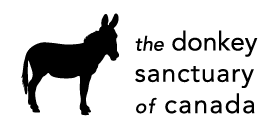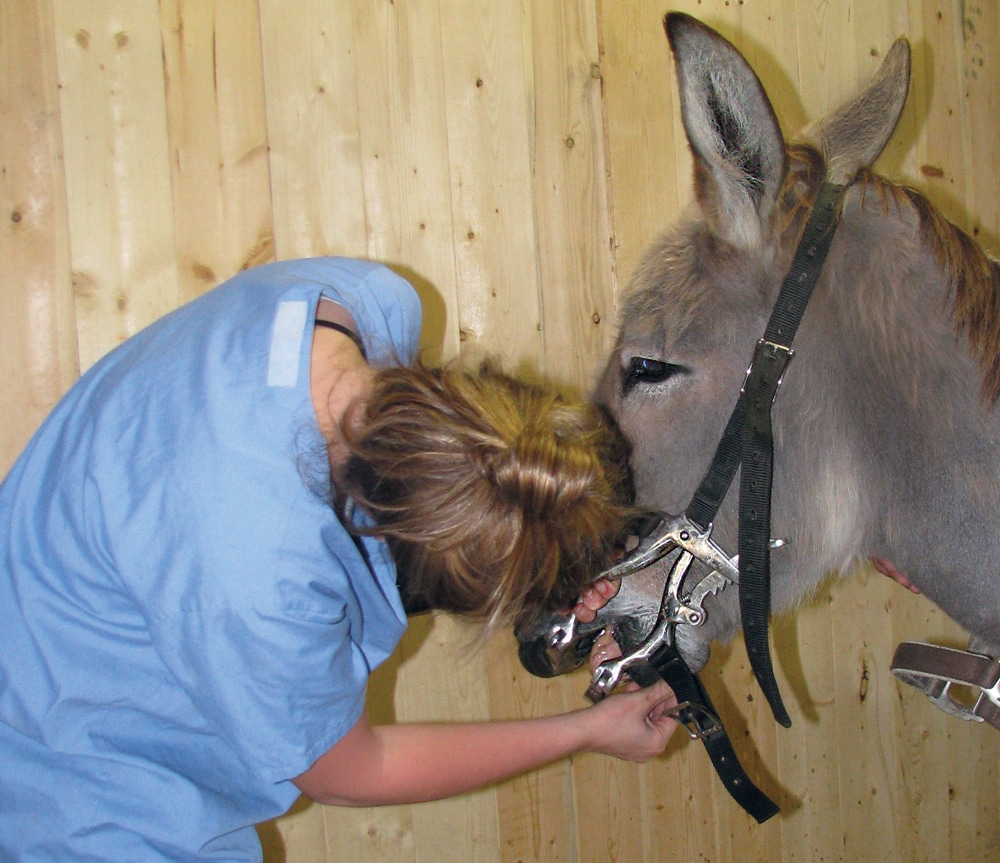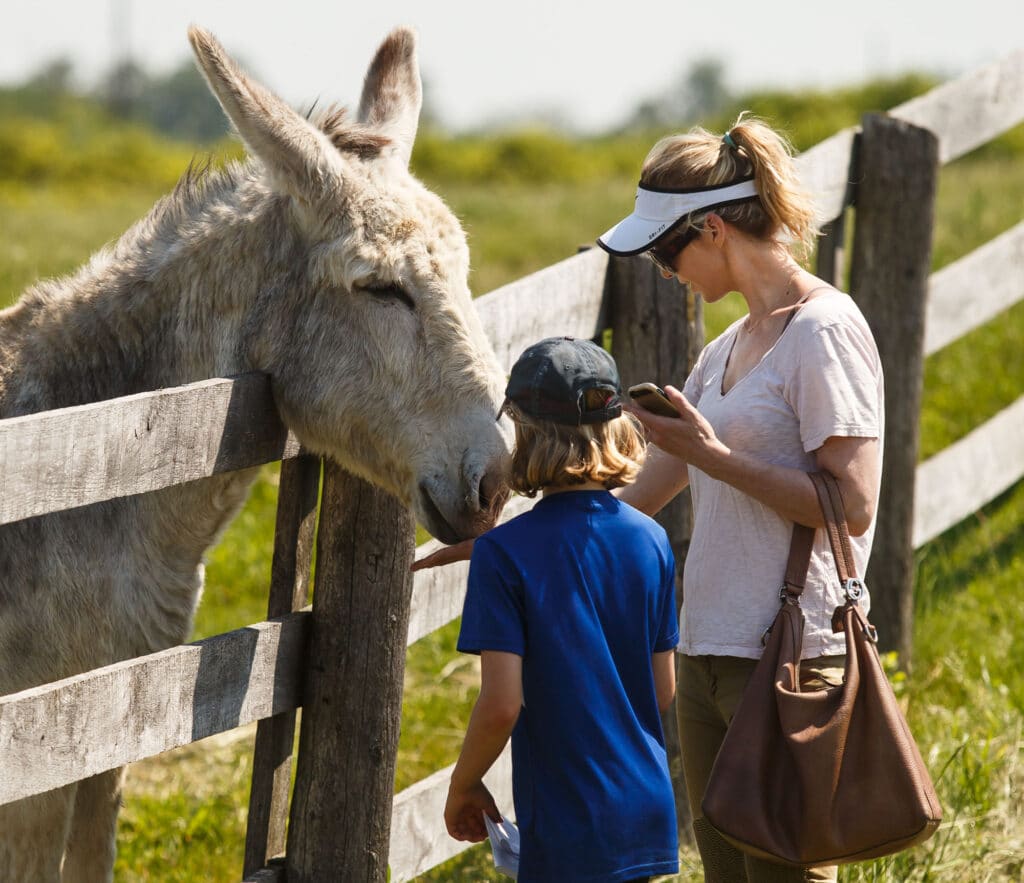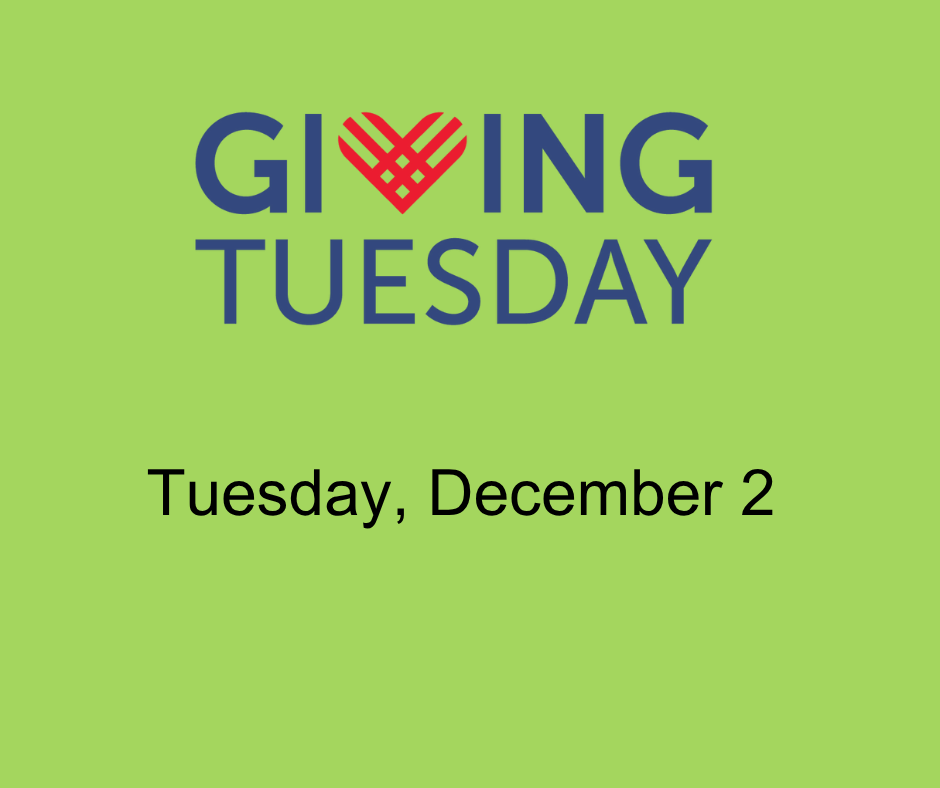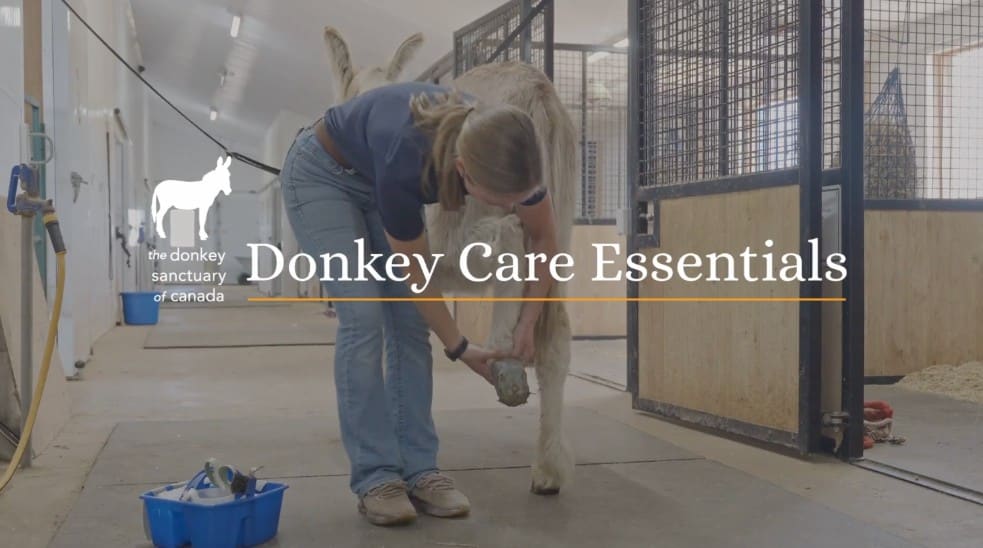Tooth floating is an super important part of keeping our long-eared friends, with their 36-40 teeth, happy and healthy. In this post, we’ll explain what tooth floating is, why it’s necessary, and how to recognize when a tooth floating might be needed.
What is tooth floating?
Just like us, donkeys need dental care, too. Tooth floating is a dental procedure in which the sharp edges of a donkey’s teeth are filed down. Donkeys, like other equines, have teeth that continue to grow throughout their lives. As they chew, their teeth can develop sharp points or uneven surfaces, which can cause discomfort or even pain. This can lead to eating difficulties, possible weight loss, and other health issues.
The term “floating” is derived from a masonry term for smoothing a rough surface, and refers to the act of smoothing the rough edges of teeth using a special tool.
Why do donkeys need tooth floating?
Donkeys have a unique dental structure, with both upper and lower teeth that work together to grind their food. Over time, the constant chewing motion can lead to uneven wear. Unlike human teeth, which are capped with enamel and stop growing, a donkey’s teeth grow continuously. Without proper maintenance, the uneven surfaces can cause a range of problems:
- Mouth sores: Sharp edges can cut into cheeks or tongue, leading to painful sores.
- Difficulty eating: Donkeys may find it hard to chew their food properly, which may cause them to eat less and perhaps lose weight.
- Digestive issues: Poorly chewed food can lead to digestive problems—larger pieces of food are harder to break down.
Signs your donkey might need tooth floating
It can be challenging to recognize when your donkey needs dental care, as donkeys are particularly good at hiding discomfort. However, there are some signs you can watch for:
- Dropping food: If your donkey is dropping a lot of food while eating, it might be because they are struggling to chew properly.
- Weight loss: Unexplained weight loss can be a sign that your donkey isn’t eating enough, possibly due to dental discomfort.
- Quidding: This refers to the habit of spitting out wads of chewed hay or grass. It indicates that the donkey is having difficulty processing the food.
- Bad breath: This can be a sign of dental infections or issues.
- Facial swelling: Swelling around the jaw area can indicate dental problems or infections.
The tooth floating procedure
Tooth floating is done by a vet or equine dental technician. The process involves:
- Examination: The professional will first examine the donkey’s mouth and teeth, sometimes using a speculum to hold the mouth open.
- Filing: A specialized tool, often manual but sometimes powered, is used to file down the sharp edges of the teeth.
- Assessment: After floating, the teeth are re-examined to ensure they are even and smooth.
Generally, the procedure isn’t painful, but it may be uncomfortable for the donkey. In some cases, mild sedation may be used to keep the donkey calm and still.
How often should tooth floating be done?
The frequency of tooth floating varies according to each donkey and their dental health. As a rule, annual dental checkups are best! Older donkeys or animals with known dental issues may need more frequent examinations. (Just as with us humans, regular checkups are key and can help catch issues early, making issues easier to manage and less stressful.)
Final notes and a few tips
Maintaining good dental health in donkeys is vital for their overall well-being. Here are some tips to keep in mind:
- Get checkups done regularly: Schedule annual dental exams with your vet or equine dental technician.
- Monitor eating habits: Keep an eye on your donkey’s eating patterns and watch for any signs of discomfort or changes.
- Feed should include fibre: A diet that includes appropriate roughage helps maintain healthy teeth.
- Keep learning: Educate yourself about donkey health and take action to address concerns as they arise.
Tooth floating is a necessary procedure that ensures the health and comfort of donkeys. Understanding the importance of dental care and recognizing the signs that your donkey might need floating can help prevent discomfort and keep your donkey healthy and contented.
This guide, by the Donkey Sanctuary (UK) is an excellent resource for more information.
